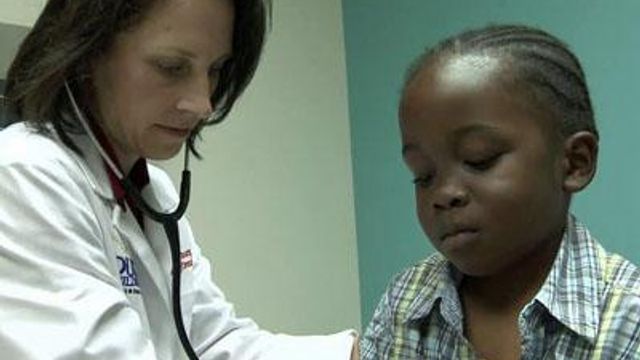Study: Drug helps young sickle cell patients
Caleb Davis, 6, has sickle cell anemia, but he doesn't allow it to stop him.
Posted — Updated“He runs. He plays. He’s involved in sports. He does karate. He’s not limited at all,” his mother, Casonja Davis, said.
Caleb’s anemia began causing problems for him more than a year ago.
“He had his first pain crisis and was hospitalized for pneumonia,” Davis said.
Sickle cell anemia gets it name because abnormal hemoglobin turns the red blood cells into crescent or sickle shapes, which are sticky and stiff and block blood flow. The condition can lead to pain in the limbs, serious infections and organ damage.
“The first thing we do is give them penicillin to prevent infections,” Duke University Hospital pediatrician Dr. Courtney Thornburg said.
For the past year, Caleb has been on hydroxyurea, a drug shown to be effective at preventing complications of sickle cell.
Thornburg was the lead researcher in a national study called Baby Hug, which looked at the effectiveness of hydroxyurea in children as young as 1 year old, before damage to the body begins.
She said the drug was well tolerated in the young study participants, with the cells changing from sickle-shaped to round, healthy cells.
Since Caleb started taking the drug, his mother has noticed improvements.
"This year, in all, he's maybe missed five to 10 days of school, as opposed to in kindergarten, he missed about half of his school year," Davis said.
Thornburg hopes the study results will cause more doctors to consider prescribing the drug to young patients identified with the disease.
• Credits
Copyright 2024 by Capitol Broadcasting Company. All rights reserved. This material may not be published, broadcast, rewritten or redistributed.





